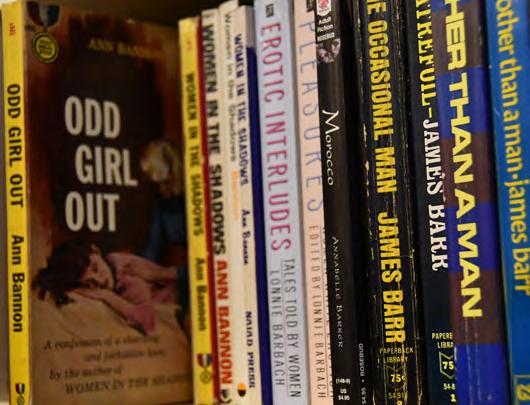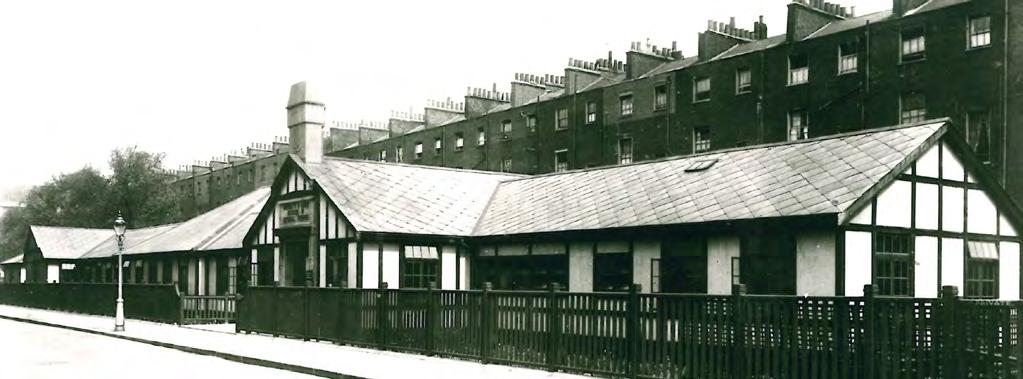
9 minute read
University news
University of London launches new five-year strategy
On 24 November 2020, coinciding with its annual Foundation Day, the University of London launched its ambitious new strategy for 2020-2025. Here, Vice-Chancellor Professor Wendy Thomson CBE shares her vision and the University’s plans for the next five years.
"The University of London is an inclusive and diverse federation of world leading educational establishments, reaching 48,000 students in over 190 countries. We collaborate with our Member Institutions to connect learners and researchers with an unrivalled range of talent and knowledge. We are continuously advancing ways to position digital technology to serve the human curiosity to learn and providing people with flexible and adaptive approaches to suit their different needs across the world.
Now is a time of opportunity and change, for these are dynamic times with many competing factors in play. Demand for higher education is at an all-time high and growing; yet access continues to elude many, generation after generation. Investment in research and development nationally is heading for a 40 per cent increase; requiring capacity at a time when partnerships are being disrupted by the pandemic, shifting diplomatic, security, and trade relationships. Participation rates in higher education have never been higher, and as more people gain qualifications so grows the importance of demonstrating value and impact. In such times, opportunity and risk are close companions. Charting a clear course has rarely been more important to securing our mission.
Our ambitious strategy addresses these new challenges by harnessing the strengths of our history and forging a path for a world class university in a modern, global community. Our three strategic objectives for 2020–2025 (detailed below) build on our mission and core values, leading the way for a positive future.
Our alumni and friends will be key to helping realise the University’s vision, and I look forward to working with you to achieve that vision."
- At this unique point in time, where distance and digital learning, working and collaboration are in the spotlight, we will enhance and reinforce our position as the UK’s leading provider of distance learning and widen our offering, creating cutting edge programmes and opportunities in new regions globally, removing geographic barriers to education. By offering increasingly flexible pathways through our programmes, we will meet the developing needs and expectations of the evolving, modern student. Enabling students to assemble degrees relevant to them, across disciplines, will equip them with the education and tools for the modern workplace. We will combine the world of advanced study with the world of work, empowering students to reskill at any point in their lives.
- The University endeavours to become the UK’s major provider of innovative intellectual exchange and effective public engagement, drawing on our expertise across the federation and through our National Centre for the Humanities. We will equip a new generation of researchers with cutting-edge training programmes and Centres of Excellence in key strategic areas and engage the public in effective and innovative new ways, connecting physical and virtual spaces.
- By continuously developing and adapting our organisation and capacity, we will continue to lead and innovate across the sector, to inform policy, advocate for positive change and provide thought leadership in strategic areas so that together we can transform lives through education and embody the university of the future.
For further details on the University’s new strategy, please visit london.ac.uk/strategy
A celebration of Foundation Day
On 24 November 2020, the University of London celebrated its annual Foundation Day, a landmark date in the University’s calendar marking the institution’s first royal charter granted by William IV on 28 November 1836.
Usually this event takes place in the University’s headquarters, Senate House, with a ceremony presided over by Her Royal Highness, The Princess Royal, Chancellor of the University. The event also honours a small number of extraordinary individuals who have made an outstanding contribution to all spheres of life, and welcomes them to the University community as honorary graduates.
Due to the COVID-19 pandemic, the University was unable to hold a physical ceremony in 2020; however, we are delighted to share a celebratory video in commemoration of this special occasion. The video, which features messages from Her Royal Highness, The Princess Royal; Vice-Chancellor Professor Wendy Thomson CBE; and some of our previous honorary graduates, can be viewed online at london.ac.uk/foundation-day-2020
580 unique individuals have received honorary degrees from the University of London in the following areas…
Doctor of Science (Medicine) 4.23%
Doctor of Science (Engineering) 3.42%
Doctor of Divinity 4.02%
Doctor of Science 19.92%
Doctor of Law 34.61%
Doctor of Music 6.44%
Doctor of Literature 27.36%
The University has awarded honorary degrees to people from 34 countries across the globe, including…the UK, USA, Nigeria, Australia, Canada, India, Brazil, Hong Kong, South Africa, and all over Europe.
Throughout the years, many well-known individuals have received honorary degrees, including... Sir Winston Churchill before receiving his DLit honorary degree in 1945. Dancer Margot Fonteyn receiving her DMus honorary degree in 1954. Archbishop Desmond Tutu receiving his DDiv honorary degree in 2008. Artist Dame Barbara Hepworth receiving her DLit honorary degree in 1970. Sir Alexander Fleming receiving his honorary degree in 1948.
Being Human in a new world
In November 2020, the University’s School of Advanced Study led its annual Being Human festival – the UK’s only national festival of the humanities. Researchers and staff from 80 universities and research organisations across the country presented over 260 free, public events and activities exploring fascinating humanities research inspired by the year’s festival theme of ‘new worlds’.
The majority of events took place online and ranged from ‘Being Human Cafes’ (small, interactive, community-focused events), to virtual museum exhibitions, performances, online exhibitions, talks and virtual tours. Recordings of many events can be viewed via the festival’s YouTube channel. These include ‘The Magical Mind of Terry Pratchett‘, in which Neil Gaiman, Rhianna Pratchett and Rob Wilkins discuss the life, stories and legacies of one of the world’s most loved authors, and ‘Being Human in Conversation: The American Election‘, in which Bonnie Greer OBE and Professor Sarah Churchwell reflect on the recent election and the future of American democracy. For further details, please visit beinghumanfestival.org/being-human-2020-round-up
Haud Nominandum Collection of over 30,000 LGBT+ books gifted to Senate House Library
Last year, Senate House Library was gifted the remarkable collection of over 30,000 books and archives from Jonathan Cutbill, one of the founders of the Gay’s The Word Bookshop and a leading LGBT+ rights activist. The collection, which dates from 1760 to the 2010s, is now one of the largest and richest collections of queer literature in the UK.
In an interview for the BBC, Maria Castrillo, former Head of Special Collections and Engagement at Senate House Library, said the collection would help fill “fundamental gaps” in LGBT+ history. She added that the Library “recognises the unique qualities of the collection and would like to develop it” and hoped it would be a catalyst for research and community engagement.

On 27 October 2020, the Friends of Senate House Library ran its annual Holden Lecture inspired by the collection. Dr Justin Bengry, Director of the Centre for Queer History at Goldsmiths, University of London, gave a talk examining the histories of some of the books drawn from these vast and important LGBT+ collections, and telling the stories behind some dangerous queer books. A video of the event is available to view online at: london.ac.uk/holden-lecture-2020
You can read more about the history of queer publishing and the life and work of Jonathan Cutbill, in a recent Senate House Library blog post: bit.ly/SHL-queer-publishing
For more information about the Friends of Senate House Library, or to join for free, please visit london.ac.uk/senate-house-library/friends
Senate House opens its doors virtually
Each September, the University takes part in Open House London – the world’s largest architecture festival – which gives free public access to over 800 buildings, walks, talks and tours across the capital.
Given the COVID-19 restrictions of 2020, the University of London opened its doors virtually and, on 19-20 September, offered exclusive online tours through its iconic headquarters, Senate House. The video tour took guests through the key parts of the building and revealed some of Senate House’s finest secrets along the way, including its royal connections through the laying of its foundation stone up to the present day. Guests also had the opportunity to submit their questions in a live Q&A session with University of London staff and Senate House experts, Tim Wade and Huw Morgan-Jones.
We are delighted to share the tour video and Q&A session, which can be viewed on the University’s website at london.ac.uk/open-house-2020-virtual-tours
To ensure you receive email invitations to future events, both online and in-person (as and when these are able to take place), please update your contact details by visiting www.alumni.london.ac.uk/convocation/keep-in-touch

Senate Room, Senate House
School of Advanced Study leads new conversation series
The University’s School of Advanced Study has recently launched an annual series of conversations called ‘Open for Discussion’, which will bring multidisciplinary humanities perspectives to bear on critical social issues with human dimensions frequently overlooked in current policy debates.
Each conversation features thought-leaders and humanities researchers in wide-ranging discussions that present questions of policy, practice, and opportunity. The 2020-21 series focuses on topics that the COVID-19 pandemic has made visible, or rather what it has forced us to see more clearly: Black Lives Matter, digital poverty, privacy rights, the importance of communication, the value of the arts and heritage sectors, and the types of knowledge needed to confront global challenges.
All events take place online, are open to the public and are free to attend. Forthcoming conversions include ‘Digital Access, Inclusion, and the Humanities’ on 23 February, ‘Unlocking Collections’ on 18 March, and ‘Transnational Perspectives on Building a Post-COVID Society’ on 22 and 27 April.
For further information and details on how to book for all events in the series, please visit bit.ly/SAS-conversation-series
Celebrating 100 years of the IHR
The year 2021 marks the centenary of the Institute of Historical Research (IHR), part of the University’s School of Advanced Study. For a century, the IHR has been thinking back and looking forward and, today, it is the UK’s national centre for history, dedicated to supporting historians of all kinds.

The IHR's first home on Malet Street, Bloomsbury, in 1921.
To mark this occasion, in July 2021 the Institute will be launching ‘Our Century’: a 12-month festival of activities exploring the field of history and its past, present and future. During this landmark year, the IHR will be hosting a programme of events and activities to celebrate the discipline and practice of history in its many forms and wherever it is found: promoting the value and power of historical thinking; celebrating diverse histories from our previous century; and looking ahead to the future of history in the coming century.
For further information about the IHR centenary celebrations and how to get involved, please visit history.ac.uk/our-century







